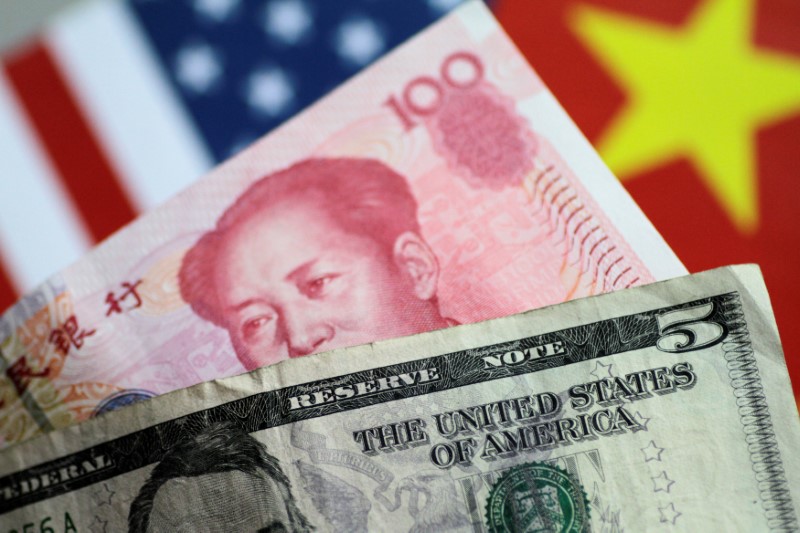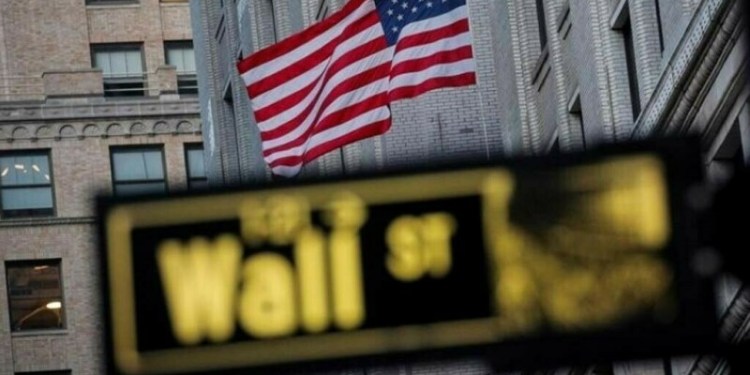 © Reuters. Illustration photo of U.S. Dollar and China Yuan notes
© Reuters. Illustration photo of U.S. Dollar and China Yuan notesBEIJING (Reuters) – China’s foreign exchange reserves rose slightly in March as broad U.S. dollar weakness continued and escalating trade tensions between the world’s two largest economies bolstered expectations of a firmer Chinese currency.
Reserves rose $9 billion in March to $3.143 trillion, compared with a drop of $27 billion in February, central bank data showed on Sunday.
Economists polled by Reuters had expected reserves to increase by around $6 billion in March to $3.14 trillion.
Capital flight was seen as a major risk for China at the start of 2017, but a combination of tighter capital controls and a faltering dollar helped the yuan stage a strong turnaround, bolstering confidence in the economy.
Last year China’s reserves rose for the first time since 2014 and its cross-border capital flows went from net outflows to basically stable.
China’s foreign exchange regulator said in late March it expected cross-border capital flows to remain basically stable this year.
The Chinese currency rose 0.8 percent versus the U.S. dollar in March and posted its biggest quarterly gain in a decade during the January-March period.
Caitong International attributed the recent yuan strength partly to the newly launched futures in Shanghai, which the brokerage said triggered demand for the yuan from foreign investors.
In 2017, the yuan rose around 6.8 percent against the greenback, reversing three straight years of depreciation.
The Trump administration slapped hefty tariffs on steel and aluminum imports last week and then announced 25 percent tariffs on some 1,300 Chinese industrial technology, transport and medical products this week in an attempt to force changes in Beijing’s intellectual property practices.
In response, China has slapped extra tariffs of up to 25 percent on 128 U.S. products including frozen pork, as well as on wine and certain fruits and nuts, and said it would soon announce more measures of equal intensity and scale against U.S. goods.
The looming specter of a trade war between the two countries fueled expectations that Beijing may be happy to see a stronger yuan at this stage to defuse tensions with Washington.
The value of China’s gold reserves rose to $78.419 billion at the end of March, from $78.064 billion at the end of February.
Fusion Media or anyone involved with Fusion Media will not accept any liability for loss or damage as a result of reliance on the information including data, quotes, charts and buy/sell signals contained within this website. Please be fully informed regarding the risks and costs associated with trading the financial markets, it is one of the riskiest investment forms possible.
Source: Investing.com





























